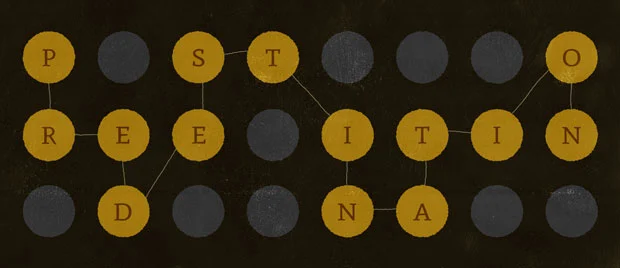What Does Predestination Mean for the Non-Elect?

Decretum horribile. That’s what John Calvin called the doctrine of reprobation (Institutes 3.23.7). It means the “awe-full decree.” We’ve seen in the previous five parts of this series that our Triune God in His amazing grace has elected or predestined some of fallen humanity to salvation. In this final post, the question we are faced with is what of the rest of humanity? Reformed theology typically confesses what is known as double predestination. The Canons of Dort(CD) define this doctrine as “the express testimony of sacred Scripture that not all, but some only, are elected, while others are passed by in the eternal decree” (CD 1.15).
This is a very serious confession. Let me focus our hearts on the biblical teaching before addressing two practical struggles this doctrine can bring up.
Is this Doctrine Biblical?
I begin with whether this doctrine is biblical because Scripture is the foundation upon which our faith stands. This is also the reason why those who deny this doctrine deny it: they don’t think it’s in Scripture. Let me survey several biblical passages to show that it is.
First, when Jesus gave His bread of life discourse He said, “whoever comes to me shall not hunger, and whoever believes in me shall never thirst.” Yet, He also said to the crowds: “you have seen me and yet do not believe” (John 6:36). Why didn’t they believe? “All that the Father gives me will come to me, and whoever comes to me I will never cast out” (John 6:37). Do you understand what Jesus said? To those hard-hearted people Jesus explicitly said to them that the Father gave to Christ some to be saved and not others. In other words, some were chosen while others were left in their hard-heartedness, unable to come to Christ.
Second, most likely the most famous passage is in Romans 9. There Paul made contrast between the historical figures of Jacob and Esau. Then he made the theological affirmations that God loved Jacob while Esau was hated; Jacob was chosen while Esau was not. These brothers stood as illustrative examples of what is true of all humanity.
Third, in 1 Thessalonians 5:9 Paul comforted believers living in dark times: “For God has not destined us for wrath, but to obtain salvation through our Lord Jesus Christ.” There are those who are comfortable in their own safety saying, “There is peace and safety” (1 Thes. 5:3), who are also described as children of the night and the darkness (1 Thes. 5:5), and who are said to be asleep in the days in which we live (1 Thes. 5:6, 7). These were destined for wrath; but we believers have not been.
Fourth, in 1 Peter 2:4 Peter said that we came to Christ, that is, we believed in Him. In contrast, he said in verse 7 that some do not believe, citing Psalm 118 that says like a stone Jesus was rejected by the builders. Verse 8 then cites Isaiah 8, declaring Jesus is a stone that causes people to stumble and a rock that causes offense to them. Peter continues, “They stumble because they disobey the word”—this is the word of the gospel back in 1 Peter 1:23-25—”as they were destined to do.”
Finally, in Jude 4 we learn that false teachers were a part of the plan of God to affect the church: “For certain people have crept in unnoticed who long ago were designated for this condemnation.”
So is this doctrine biblical? Yes. A simple reading of Scripture shows that not only are some chosen to salvation in God’s eternal purpose, but some are not. Those Scripture passages that teach God’s election of a particular people unto salvation also teach God’s non-election of others.
This is where a distinction is helpful to understand this. Preterition is God’s passing over some when He choose others. Condemnation is God’s actual consigning the passed over to eternal punishment. Condemnation, therefore, is subsequent to preterition. In other words, election and reprobation are not precisely parallel, as God’s positive choice in grace is what makes us elect, while His withholding of grace by passing by means that others will be left in their sins and because of that are therefore condemned by God.
Some detractors of reprobation say that it is debilitating to the Christian life. Let me address the two common pastoral issues this doctrine often creates.
1. What if this Doctrine Frightens Me?
It’s easy for some of us who are affected with the struggle of seeing life as a glass half empty to hear a doctrine like reprobation and to live in doubt, but there are different categories of people who hear this doctrine and have a difficult time with it.
First, there are believers who have a living faith in Christ, are assured in their souls, have peace of conscience, and desire to be obedient to the glory of God. Yet even these believers are not completely assured at all times. Reprobation may bring this out in their minds and hearts. The answer is making perpetual use of the means that God has appointed for working His grace in you—the Word, the sacraments, and prayer.
In the end, what both the doctrines of election and reprobation teach us is that we have a totally sovereign God who is perfectly good.
The second kind of believer is the one struggling with ongoing sin. Are you beset by some sin that is keeping you from a stronger relationship with Christ? You should not be afraid when you hear of reprobation because in His mercy, God has promised that He will not quench the smoking flax nor break the bruised reed (Isa. 42:3), that is, the struggling believer.
Finally, there is a category of hearer that needs to be worried when this doctrine is mentioned. It’s not believers who need to be worried but those who have wholly given themselves over to the cares of the world and the pleasures of the flesh. If this is you, reprobation should be fearful; but its mention is also the opportunity to repent and believe in Jesus Christ.
2. What if My Child Dies?
A second practical problem is how reprobation relates to infants who die? The caricature described in the Canons of Dort is that those who hold to a doctrine of reprobation believe “many children of the faithful are torn, guiltless, from their mothers’ breasts, and tyrannically plunged into hell” (CD, Conclusion).
Not only was this question a huge issue in the seventeenth century when about 25% of children died in childbirth and then another 25% of those who lived died before age five, but for us, according to the American College of Obstetricians and Gynecologists (ACOG) anywhere from 10–25% of all clinically recognized pregnancies will end in miscarriage.
So how does the doctrine of reprobation relate to this struggle? The Scriptures teach us as believers that our children are covenant children. The children of at least one believing parent are holy (1 Cor. 7:14) not because they are sinless but because they belong to God’s set apart people. The Lord made His covenant with Abraham and his children (Gen. 17:7). When David found out his child died, he ceased weeping and fasting and arose in confidence that while his son would not come back to him, one day David would see him (2 Sam. 12:23). Where? In the presence of God. David prayed as a covenant member that when he was in his mother’s womb it was the Lord who was forming him and who knew him (Ps. 139). Moving into the New Testament we see that nothing changes. Jesus and the apostles inherit this outlook on children and never say anything to abolish or revoke it. Jesus said, “Let the little children come to me and do not hinder them, for to such belongs the kingdom of heaven” (Matt. 19:14). On Pentecost Peter said God’s promise was to those who believed and their children (Acts 2:39). Paul addressed children in Ephesians 6:1 as they would have been present in the covenant community when this letter was read.
Does this mean all human life that dies in its infancy is in heaven? Whereas Scripture gives us confidence about the children of believers, it is silent about the rest. Great men have personally believed that all infants dying are saved, such as C.H. Spurgeon, Charles Hodge, and B.B. Warfield. So what do we say about aborted life, miscarried life, or precious children of non-believers who die tragically before their life can even get going? We say that God is a good, gracious, and just God and that He will do what is right. We can trust Him.
In the end, what both the doctrines of election and reprobation teach us is that we have a totally sovereign God who is perfectly good. In the end, He will be glorified for His justice but especially His grace, love, and mercy.


